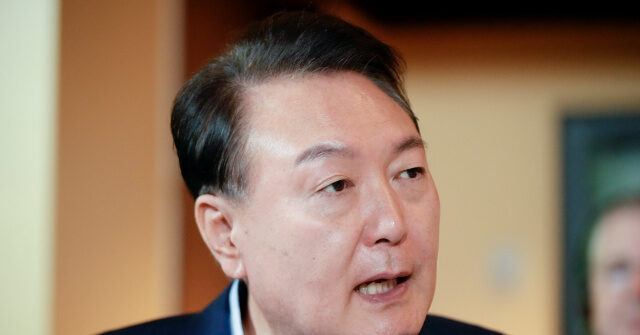In recent days, North Korean state propaganda outlets have rapidly spread news of the impeachment of South Korean President Yoon Suk-yeol, marking a significant political upheaval in the southern neighbor. This event comes after Yoon’s controversial attempt to enforce martial law on December 3, under the pretext of protecting South Korea from perceived threats posed by “North Korean communist forces.” Despite the absence of an immediate military threat, Yoon’s claim led to widespread alarm among citizens, as his administration faced increasing tensions with the opposition Democratic Party. Yoon’s accusations of “infiltration” by communists in the government fueled the narrative surrounding his martial law declaration.
The martial law, however, barely lasted six hours before a courageous intervention by the National Assembly halted it. Legislators, confronting a line of military personnel deployed by Yoon to block their entry, successfully held a late-night session on December 4, overturning the martial law ruling. Reports indicate that military personnel hesitated to follow orders amidst legal ambiguities surrounding Yoon’s authority. In the aftermath, the Democratic Party quickly moved forward with impeachment proceedings, which they had previously attempted unsuccessfully. By the weekend, they succeeded in voting to suspend Yoon’s powers and initiated a process that requires the Constitutional Court’s involvement to decide his fate.
The North Korean regime’s propaganda outlet, the Korean Central News Agency (KCNA), reported dispassionately on these events, chronicling details of the impeachment vote and the next legal steps. KCNA’s report seemed to blame Yoon himself for exacerbating the situation through his public address prior to the impeachment, where he portrayed the National Assembly as a “monster” damaging democratic governance. In his address, Yoon asserted that the opposition was responsible for paralyzing the government, indirectly suggesting that they were colluding with external threats, particularly from North Korea. Such rhetoric underscores the intense political battle and the atmosphere of distrust between Yoon’s administration and his opponents.
The process of impeachment in South Korea requires a two-thirds majority in the National Assembly, a significant challenge considering Yoon’s conservative People Power Party (PPP) had previously failed to assemble a quorum for an impeachment vote. However, during the latest session, twelve unexpected votes from PPP members led to Yoon’s ouster, signaling a notable shift in internal party dynamics. The secret ballot ensured anonymity regarding which members broke ranks, but the decision reflects growing dissent against Yoon’s leadership among his party members, complicating his political landscape further.
Yoon’s political future now rests with the Constitutional Court, which has initiated discussions regarding the legitimacy of the impeachment, with a decision expected within 180 days. To uphold the impeachment, a unanimous agreement from six of the court’s judges is required. In a resolute public address following the impeachment vote, Yoon expressed determination to continue his fight against his opponents, highlighting his commitment to the people of South Korea and his political vision. His statement emphasized unity among conservatives and a resolve to act in the country’s interest, despite the current political turbulence challenging his leadership.
As political uncertainty continues, the leftist Democratic Party has already signaled intentions to engage in further impeachment actions, this time targeting acting President Han Duck-soo, should he oppose legislation championed by the Democrats. This potential for escalating political chaos raises concerns about the stability of governance in South Korea and the implications of frequent impeachments. While members of the Democratic Party advocate for maintaining a responsible governance structure, opinions vary on the necessity and consequences of another impeachment, highlighting the delicate balance of power and accountability in the South Korean political system. The situation remains fluid, underscoring the complexities of presidential authority, party allegiance, and public sentiment in a democracy facing critical challenges.

